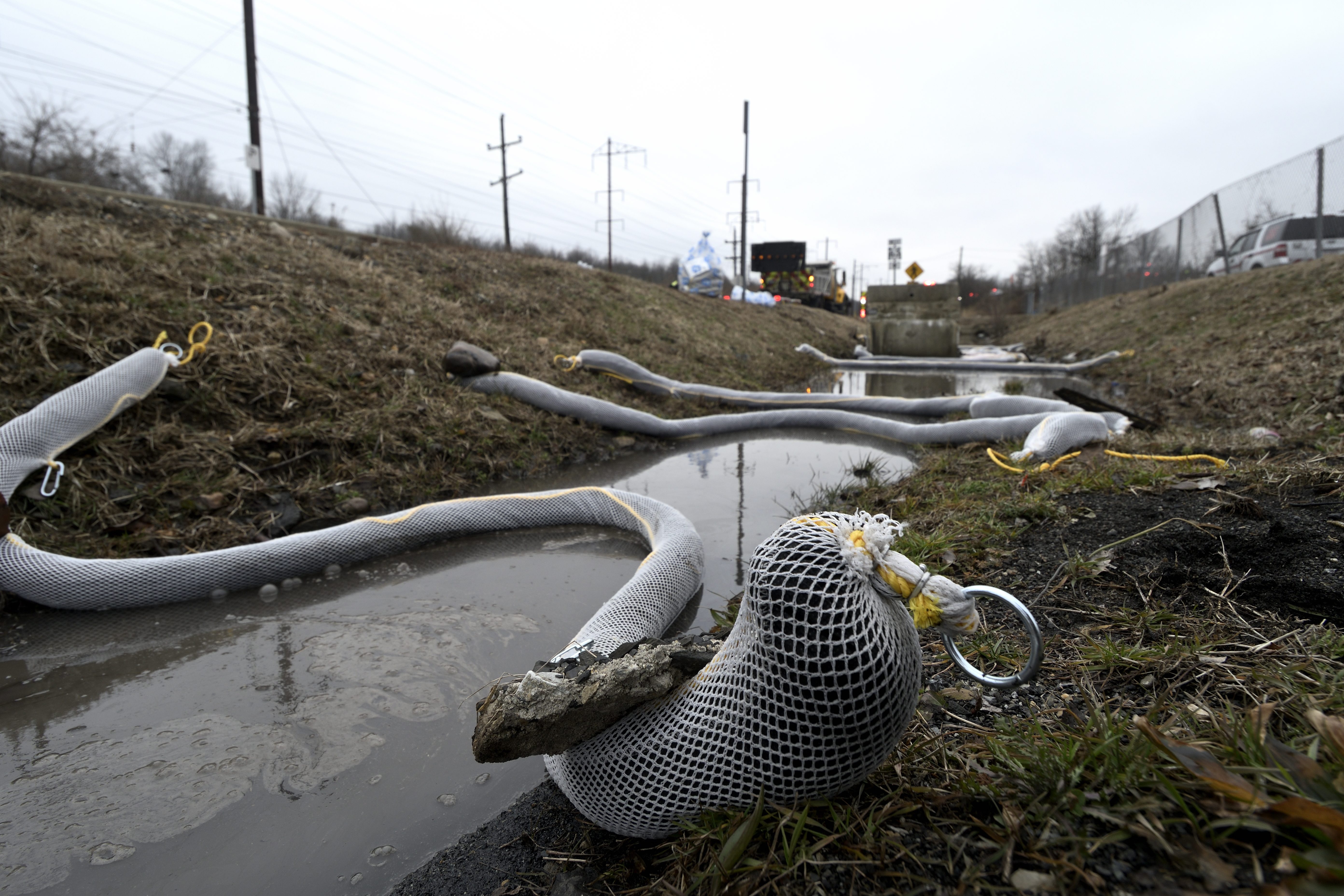In a blink-and-you’ll-miss-it moment during Tuesday night’s CNN debate in Detroit, Michigan, Democratic presidential candidates were posed a key question about water issues — a moment that highlighted the disproportionate impact of water crises on vulnerable communities.
Despite taking place in Michigan — a state that has long suffered from lead- and chemical-tainted water — debate moderators asked only one question on the topic and addressed it to only two candidates. The brief moment reinforced the extent to which water problems are not given debate treatment, even as it yielded a widely-applauded line from author Marianne Williamson.
Asked about the ongoing water crisis in Flint, Williamson called the issue “the tip of the iceberg.” Around 100,000 people were impacted when the Michigan city’s water source changed five years ago, allowing lead to enter drinking water. Multiple deaths and severe health impacts are linked to the crisis; even today residents say they are afraid to drink the water.
Williamson then went beyond lead issues, speaking to wider systemic trends across the country.
While President Donald Trump’s administration has touted water, not climate change, as the nation’s top environmental problem, Williamson pointed to deregulatory plans by the Environmental Protection Agency (EPA) that environmentalists and scientists have slammed as dangerous for people and the environment.
“We have an administration that has gutted the Clean Water Act,” she said, drawing attention to the law that regulates the discharge of pollutants into surface waters, like lakes and streams.
Williamson went on to highlight the communities so often impacted by water crises. “We have communities, particularly communities of color and disadvantaged communities all over this country who are suffering from environmental injustice,” she said.
Flint is a majority-black city where more than 40% of residents live below the poverty line. Drawing a poignant comparison, Williamson noted that she once lived in Grosse Pointe, Michigan, an affluent coastal city. “What happened in Flint would not have happened in Grosse Pointe,” she asserted, arguing that those impacted by such issues are “particularly people of color — it’s particularly people who do not have the money to fight back.”
Those comments yielded thunderous applause and came after Sen. Amy Klobuchar (D-MN) touted her $1 trillion infrastructure plan as a means of preventing further issues like what happened in Flint. But the brief exchange marked the only real discussion of water issues during the two and a half hour debate, sparking criticism.
“Tonight’s debate is an hour from my hometown of Flint. It’s very disappointing that there hasn’t been a single question yet about ensuring clean water for all Americans,” wrote Rep. Dan Kildee (D-MI) on Twitter just prior to Williamson’s comments.
Leading up to the debates, some candidates have emphasized environmental justice issues. Gov. Jay Inslee (D-WA) unveiled a sweeping plan on Monday to address the environmental struggles facing vulnerable communities. That same day, Sen. Kamala Harris (D-CA) rolled out a joint climate justice plan with Rep. Alexandria Ocasio-Cortez (D-NY).
Climate advocates and organizations have sought to highlight the lack of attention moderators and candidates have historically paid to global warming during presidential debates. The first two Democratic debates in June devoted only 15 minutes cumulatively to the issue.
Outcry from groups like the youth-led Sunrise Movements and candidates like Inslee, the only candidate to build his campaign around climate change, have also helped pave the way for not one but two climate forums to be held by major networks in September.
But the lack of attention given to other environmental issues, like water, was notable, especially given the debate setting.
Detroit itself has struggled with water issues for years, resulting in semi-frequent shutoffs. A May analysis by the Environmental Working Group (EWG) and Northeastern University also found that Michigan is the state whose water is most impacted by “forever chemicals” — per- and polyfluoroalkyl substances (PFAS), toxins found in everyday items like nonstick pans which can increase the risk of cancer.
Meanwhile, other parts of the country are reeling from their own water crises. Studies show that agricultural runoff is contaminating private wells in states like Iowa. And in Denmark, South Carolina, residents are battling with the government to test the town’s wells after months of brown, foul-smelling water running from their taps.
As Williamson noted, statistics show that those impacted by water issues are disproportionately people of color and low-income. And lawmakers have at times elevated these problems during campaign cycles, as was the case with Flint during the 2016 election.
But even as water crises mount throughout the country, the topic has received little attention on the campaign trail, with a few exceptions — former Housing Secretary Julián Castro visited Flint in June, the first 2020 Democratic contender to do so.
At least one environmental issue saw more time on Tuesday night. Several candidates emphasized the importance of addressing climate change and some, like Sen. Elizabeth Warren (D-MA), laid out policy details for how to tackle the problem.
Contenders also had the chance to dive into their stances on the Green New Deal, a plan to radically decarbonize the U.S. economy. Progressives have largely embraced the proposal but moderates like former Gov. John Hickenlooper (D-CO) repeatedly panned it as a “disaster.” Overall, there were 12 minutes devoted to climate issues on Tuesday — more than ever before for a single debate.


